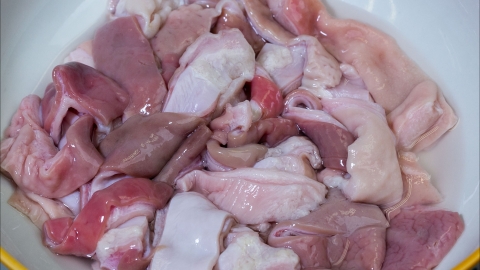Can patients with rectal cancer eat pork tripe?
Whether patients with colorectal cancer can eat pig stomach (tripe) depends on their specific condition and digestive capacity. Patients with normal digestive function and who are not in an acute phase of treatment may consume it in moderation; however, those experiencing chemotherapy-induced vomiting or whose intestinal function has not yet recovered after surgery should avoid it. Detailed analysis is as follows:

For patients with stable conditions and good digestion, moderate consumption of pig stomach can be beneficial. Pig stomach is rich in high-quality protein, which helps meet nutritional needs, supports tissue repair, and enhances immune function. It should be cooked until tender using mild methods such as clear stewing or porridge preparation, avoiding greasy or spicy seasonings to reduce the digestive burden on the intestines.
Patients undergoing chemotherapy who experience severe nausea, vomiting, or diarrhea may find that the protein in pig stomach increases gastrointestinal strain and worsens discomfort. In the early postoperative period, when intestinal function has not fully recovered and peristalsis is weak, pig stomach is difficult to digest and may cause bloating or abdominal pain. Therefore, it should be avoided under these circumstances.
Daily diet should follow the principles of being light, easily digestible, and nutritionally balanced. Adjust types and amounts of food according to individual digestive tolerance, and include fresh fruits and vegetables to ensure adequate vitamin intake. Maintain regular meal times, chew food thoroughly, avoid raw, cold, or hard foods, and maintain a healthy lifestyle to support recovery.




